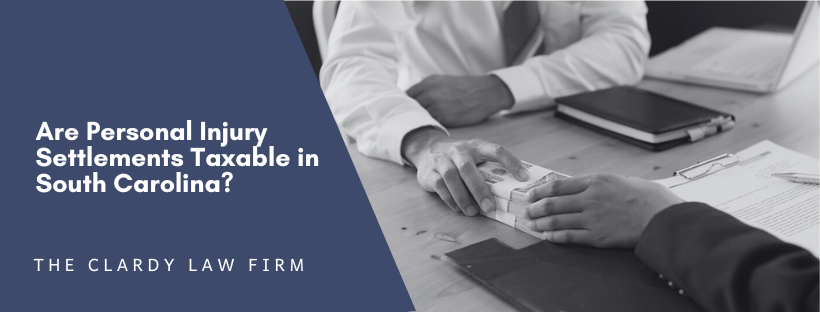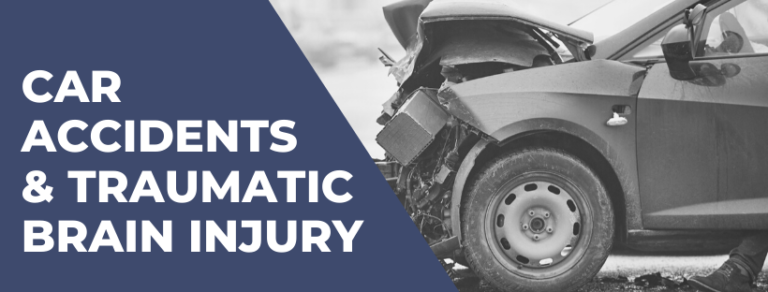A personal injury settlement is often a lifeline for people injured in accidents that weren’t their fault. Severe injuries may need extensive treatment, multiple surgeries, and lengthy rehabilitation, resulting in victims being out of work for months or years — or unable to work again. After so long recovering from your injuries or perhaps adapting to a new routine because of their impact on your daily life, a compensation figure in black and white can be a welcome sight.
Once you’ve settled your personal injury lawyer’s fees, liens for medical treatment, and any other expenses, you’re free to move on with your life.
Or are you?
You might wonder if you need to pay taxes on your personal injury settlement.
With federal taxes as high as 37%, you can quickly lose a chunk of your settlement.
If you’re entitled to claim compensation after an accident, the prospect of paying taxes on your personal injury settlement may make you wonder whether it’s worth all the hassle.
Types of Damages Included in a Typical Settlement
A personal injury settlement consists of damages — compensation for your losses. Different damages may be subject to tax, so we first need to understand them.
At a top level, damages fall into one of two categories:
- Compensatory damages: These recompense you for physical harm and reimburse you for past expenses and anticipated future losses as a direct result of your injuries. Generally, compensatory damages awarded in a personal injury claim are not taxable, but exceptions apply.
- Non-compensatory damages: These are additional awards as they do not directly link to your losses after an accident. You will generally need to pay tax on these damages.
Both categories are further split into different types of damages. Every personal injury settlement is unique based on your accident and its impact on your life, so you may receive any combination of the damages listed below.
Economic Damages
As the name suggests, economic damages are the financial losses suffered after your accident. These have a fixed, tangible cost and often include:
- Past and future medical expenses for emergency room treatment, consultations, scans, hospitalization, medications, surgeries, transport to and from the hospital or doctors’ appointments, physical therapy, prosthetics, and counseling.
- Past and future lost income due to being unable to work because of your injuries.
- Property damage, such as the cost of repairing your vehicle after a car accident or your vehicle’s value if it is totaled.
- Home adaptations and assistive devices to enable independence after a life-changing injury, such as wheelchair ramps, grab bars and handrails, stairlifts, walk-in showers or bathtubs, lowered countertops, and widened doorways.
Non-Economic Damages
Non-economic damages represent the intangible losses you’ve suffered or continue to suffer. These damages can vary as you cannot quantify them with a receipt, invoice, or payslip like you can with economic damages.
Non-economic damages include:
- Pain and suffering for the physical pain your injuries have caused.
- Emotional distress for psychological conditions resulting from your accident or injuries, such as anxiety, depression, and post-traumatic stress disorder (PTSD).
- Loss of enjoyment for no longer being able to participate in activities or hobbies you previously enjoyed.
- Loss of consortium for the loss of care, comfort, emotional support, household services, or financial support due to a loved one’s wrongful death or severe injury.
Punitive Damages
Punitive damages can apply when a defendant’s conduct is egregious or reckless. Unlike economic and non-economic damages, which compensate you for your losses, punitive damages punish the person or party that caused your accident.
Punitive damages can only be awarded in a court of law when you have “proven by clear and convincing evidence that the defendant’s misconduct was willful, wanton, or in reckless disregard” of your rights, such as if they intentionally harmed you or were driving under the influence of alcohol or drugs.
Punitive damages are at the discretion of a jury and capped at $500,000 or three times your compensatory damages — whichever is greater. These are taxable and must be included in your gross income.
Related: Personal Injury Settlements: How Much Can You Expect?
Which Damages in a Personal Injury Settlement Are Taxable in South Carolina?
Between complex tax codes and brackets and state and federal requirements, it can be hard to understand what’s taxable and what’s not.
Generally, you won’t pay tax on your personal injury settlement because it’s not considered income.
This applies to all compensatory damages you receive, including medical bills, property damage, and pain and suffering.
However, there is a caveat.
If your personal injury award includes non-economic damages — such as for pain and suffering or mental anguish — they must stem from a physical injury.
Say you’re in a car accident in South Carolina and sustain a traumatic brain injury (TBI) that impairs your speech and memory and causes your personality to change. As a result, you become withdrawn from your friends and loved ones and develop depression. You receive a settlement for your economic damages plus damages for pain and suffering.
As your non-economic damages stem from your TBI — a physical injury — you will not pay tax on your settlement.
If you are married and your injury impacts your relationship, your spouse may claim for loss of consortium. They will not have to pay tax on a settlement, as the loss resulted from the physical injury sustained in the accident.
Now, let’s look at a second example.
You’re in the same car accident, but you don’t sustain a traumatic brain injury — or any other injuries. But after walking away from the accident physically unharmed, you develop PTSD and fear driving again. This causes you to become withdrawn and depressed. In this case, you would need to pay tax on your non-economic damages as they did not stem from a physical injury.
Paying tax on pain and suffering is more common in other types of civil cases, such as if you suffer emotional distress after a home invasion but are not physically hurt.
The personal injury cases we handle typically involve physical injuries, so as a general rule, you will not need to pay tax on your settlement.
Lost Wages
Lost wages recovered in a personal injury claim are not usually subject to taxation.
Section 104 of the Internal Revenue Code (IRC) states:
Gross income does not include the amount of any damages (other than punitive damages) received on account of personal physical injuries or physical sickness
The Internal Revenue Service (IRS) itself emphasizes the following:
“The Service has consistently held that compensatory damages, including lost wages, received on account of a personal physical injury are excludable from gross income with the exception of punitive damages.”
As with non-economic damages, lost wages that do not derive from a physical injury are taxable.
If you are subject to tax, remember that a large lump sum can push you into a higher tax bracket. An attorney can help you offset this by pursuing a larger personal injury claim.
Punitive Damages
Punitive damages are rare in a personal injury claim, but they do happen.
Let’s go back to that section of the IRC but with a different emphasis:
Gross income does not include the amount of any damages (other than punitive damages) received on account of personal physical injuries or physical sickness.
This means you will pay tax on punitive damages awarded in a personal injury claim.
Tax rules are complex, so we advise consulting a financial expert to understand your tax liability and potential deductions.
Related: How Will My Personal Injury Settlement Be Paid Out?
What You Can Expect to Pay Taxes on at a Glance
- Compensation for physical injuries or sickness: Amounts received as compensation for physical injuries or physical sickness are generally not taxable, whether received as a lump sum or in periodic payments. Including medical expenses related to the injury or sickness.
- Emotional distress or mental anguish: If the emotional distress or mental anguish originated from a physical injury or sickness, the settlement is not taxable. However, if it did not stem from a physical injury or sickness, the amount is taxable. Any amount received for medical expenses related to emotional distress is also not taxable if those expenses were not previously deducted.
- Medical expenses: If you previously deducted medical expenses related to your injury on your tax return and received a settlement for those expenses, that portion of the settlement may be taxable.
- Lost wages: Compensation for lost income is generally taxable because it is considered an income replacement you would have earned and would have been subject to taxes.
- Punitive damages: These are taxable and must be included in your gross income. Punitive damages are intended to punish the defendant rather than compensate the plaintiff for losses.
- Interest: Any interest that accumulates on the settlement amount is also taxable.
You should consult with a tax professional to understand the specific tax implications of your settlement, as tax laws can be complex and subject to change. Proper allocation and documentation of the settlement components can be crucial in determining the correct tax and can help you avoid paying taxes on a lawsuit settlement.
Speak to a Personal Injury Lawyer
If you’re hurt in an accident in South Carolina, you may be able to recover compensation. In most cases, you will have to pay very little tax on your settlement, and the benefits of claiming significantly outweigh having to pay the government a small cut.
Our personal injury lawyers in South Carolina, will fight to get you the compensation you deserve.




